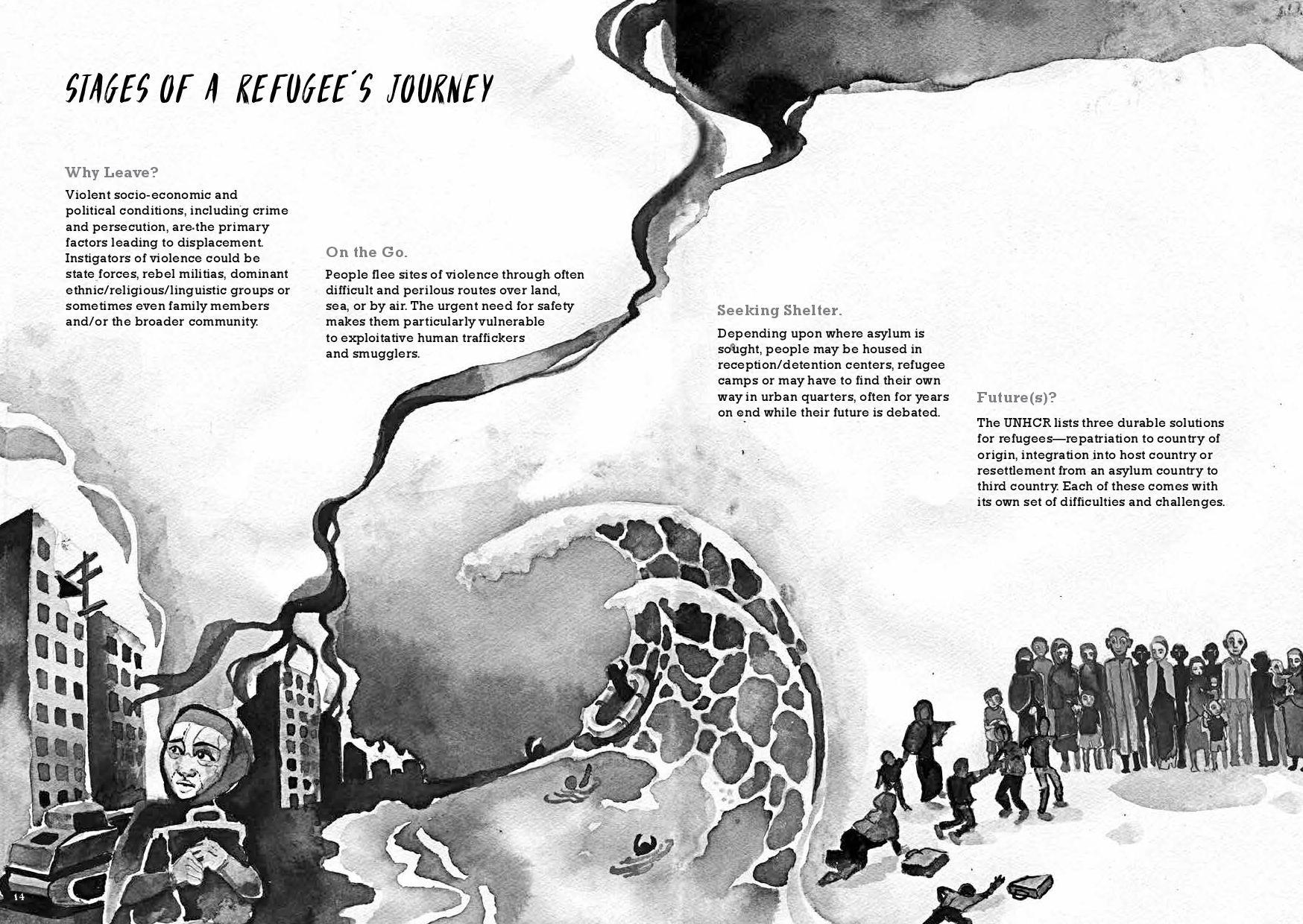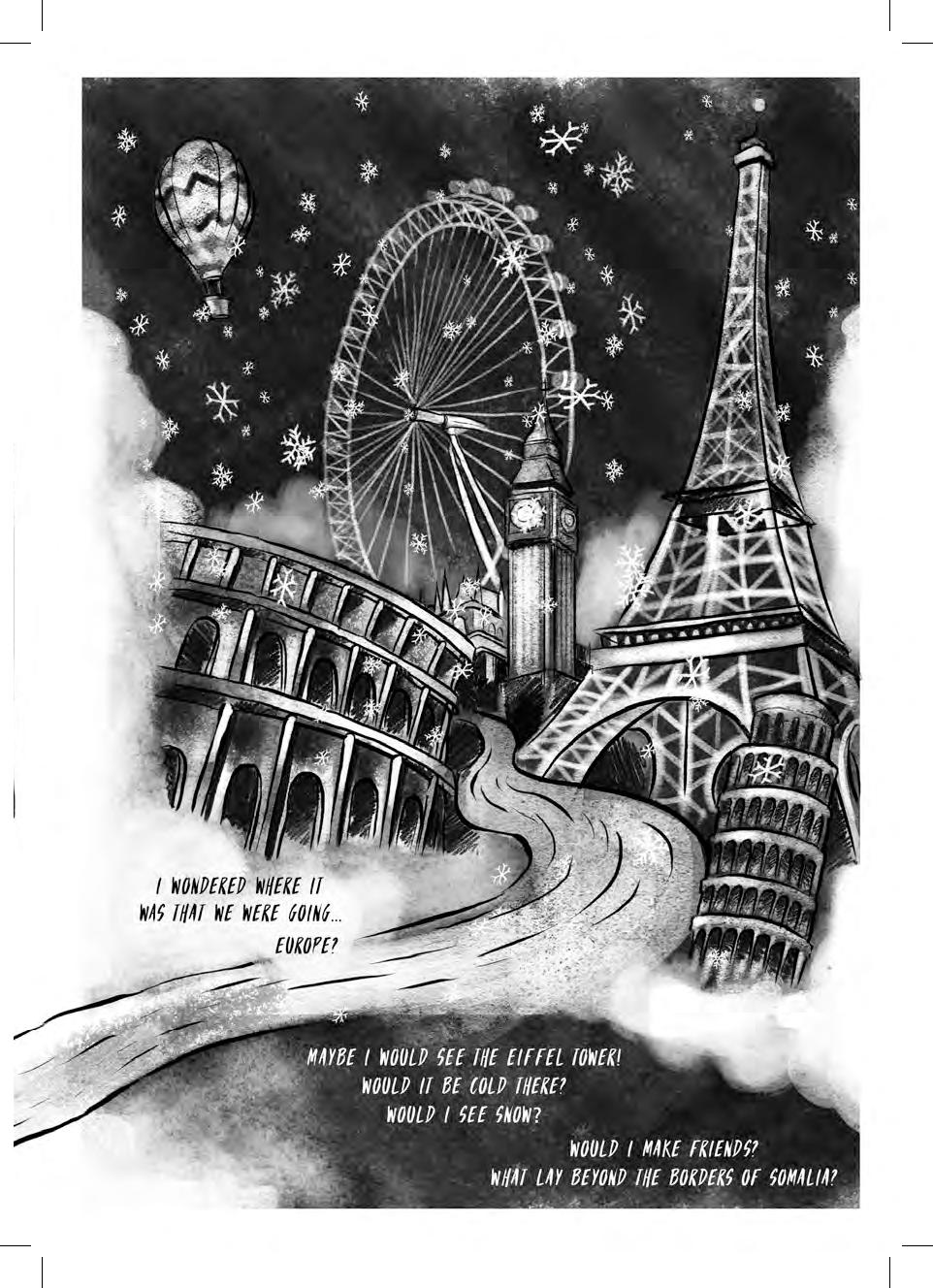

The Horizon is an Imaginary Line, is a semi-fictional graphic novel that attempts to illustrate accounts of a young refugee woman in India, writes Neha Pant
If there is something that you must read this month, let this be it. In The Horizon is an Imaginary Line, authors Bani Gill and Radha Mahendru, and illustrator Pia Alize Hazarika, attempt to piece together stories of refugees and what life is like for them in the capital. The book came out of workshops with African refugees at KHOJ (the art studio) and their stories of diaspora and struggle for acceptance in a country that is so preoccupied and untrusting of the ‘other.’
The book opens with the question, what is a refugee? And weaves a narrative that traces the semi-fictional journey of its protagonist, Maryam Jama Mohamed, who ends up in India after her father’s death, when her family is smuggled out of Somalia to escape the violence in Mogadishu. They leave with the promise of being taken to the west and instead they find themselves stranded in India. With no legal documents, they have no proof of the life they left behind. Uprooted and stuck, Maryam tries to make peace with her past and build hopes for the future but struggles every day as questions of identity and societal acceptance confront her every day.

 “I realised that the India I had seen in Bollywood films was a lie. People were cruel. They judged me without even knowing me. I never knew that the color of my skin, or my clothes or even where I was from could elicit so much hate,” she says.
“I realised that the India I had seen in Bollywood films was a lie. People were cruel. They judged me without even knowing me. I never knew that the color of my skin, or my clothes or even where I was from could elicit so much hate,” she says.
Mahendru, who is the co-author of the book and programs manager at Khoj said at the launch that, “Through Maryam, we reflect on the lived experiences of alienation and marginalisation as an outsider on the fringes of an increasingly bordered world.” It is partly designed as an info-graphic with the purpose of dispelling myths about the refugee crisis and India’s “ambiguous status within the global refugee regime.”
Gill, who is pursuing a PhD on migration and is on the editorial board of a journal called, Refugee Review, says that, a lack of strong laws creates more problems because most of the people do not know where to go when they are discriminated against. “There are several refugee communities living here but we do not have a refugee law in India which creates problems for many of them since they do not know where to take help from while facing discrimination.”
Humorous in parts yet deeply insightful, this is not a happy book but an essential one nevertheless, as it makes you reflect on the pertinent questions of the refugee—a topic that everybody has an opinion on, but very often lack the empathy to understand the true implications of. Maryam not only makes you question your prejudices, she also makes you confront how shamefully deep they run.
To buy the book, go to the KHOJ office in Khirkee extension or get in touch with them here